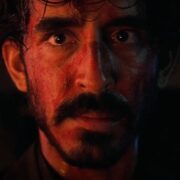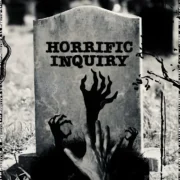BRIDGEND: Too Close For Comfort
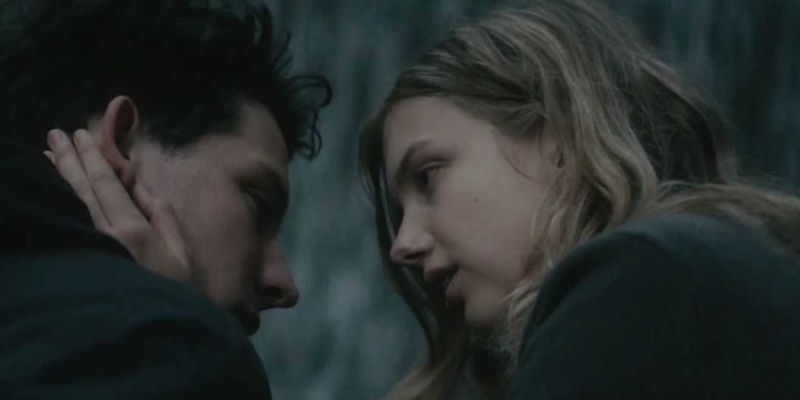
I love film, more than people probably, and I will…
Usually I will have heard about a film before it is released. It’s odd when that doesn’t happen. It’s even odder when the film was originally released almost a year ago and I still haven’t heard about it. I know what you’re thinking, I shouldn’t have to know everything. But when that film is about the very dark, disturbing, real life events that happened only a half hour drive away from where I write this, you have to wonder why I was in the dark.
While I didn’t know much about Bridgend before watching it, I do know what the film is about. Between January 2007 and February 2009 25 people killed themselves in the Bridgend area. They were mostly young teenagers and all but one killed themselves by hanging. By February 2012 the number had risen to 79. And while the suicides stretched outside the Bridgend village into the wider county and included older people in their number, the age of the suicide and the way they ended their life remained pretty much the same.
As you can imagine, these events continue to be a difficult topic to address. Not least so because while the numbers aren’t the same, the problem is ongoing. I’m not sure of the current statistics but I can tell you of other cases of suicide by hanging that have occurred in this area. Our valleys were once a thriving industrial area, a major source of coal and steel for the world’s population. But now? Unemployment is rife, there are problems with heart disease, obesity, mental health issues, and as a result, very high suicide rates. The idea that anyone would want make a film about that, about us, for entertainment purposes, makes my stomach churn.
Objectively
Bridgend, objectively, is not a bad film. The director, Jeppe Rønde, and the film itself are Danish. If you are familiar with the Scandinavian TV crime thrillers that have been so successful as of late you will recognise the cool silences and the wide shots of endless forests and impenetrable darkness. The film has been shot very well, and I can’t doubt that. Choices in editing also make their mark with visions of the dead floating in the lake, and shots of stark, disturbing suicide scenes, jutting in and unsettling the flow of the narrative and the mind of the viewer.
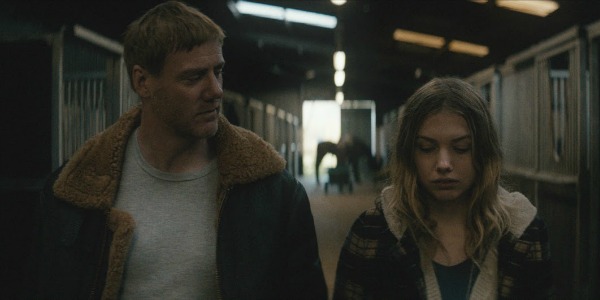
The main story, however, is a bit dull. The narrative centres around Sara (played by Game Of Thrones’ Hannah Murray) and her police officer father Dave (Steven Waddington), who have just returned to the village. Their relationship appears to be close but then Dave swings back and forth between being a doting dad and being exceptionally hard on Sara. His silence and intensity you can only imagine comes from his fear that Sara will be influenced by the teenage suicides (which some people imagined was a suicide cult). However, his character is badly constructed; he’s nice, then he’s quite horrible, he’s caring, then he’s treating the teenagers he’s meant to protect with suspicious disdain. It is difficult to understand or engage with him.
A Violent Wolf Pack
The film’s point, outside of the teenage suicides, is possibly to see what will happen to Sara as she grows up under the influence of the events in Bridgend. But you never really empathise with her or understand her. To be honest, I found her blank and passive. She never ever shows what she’s thinking or feeling, she doesn’t seem to know her own mind, not even at her most passionate. While Jamie (played by English actor Josh O’Connor) is more convincing, their relationship seems hollow, based on some American New Wave ideal of the young, misunderstood couple who find comfort in one another.
The supporting cast is good. Rønde renders their trauma and shock as confused hedonism. Which is understandable, as they cling on to any act that might make them feel; sex, violence, alcohol. But a hesitancy to understand what the teenagers are thinking and feeling means they’re dressed up as some kind of mysterious, hormonally charged wolf pack. Not the depressed, traumatised kids they must have been. The strained relationships they have with their parents are also not fully explored, the kids simply ignore their parents, as any other teenagers would. There is a lot to say here about depression in the valleys and the desperation not to be alone, whether it be in life or death, but the film doesn’t take the chance.
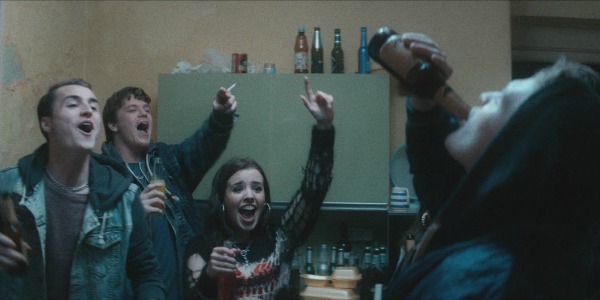
Objectively, overall, Bridgend is a good film. It could have been very good had the narrative sought to better understand its characters and what they are thinking. As it is the narrative lags in the middle and you’re left not entirely sure that you’ve learnt anything about them or that a point has been made.
Subjectively
The reason why Bridgend might not have a conclusion is because one wasn’t reached in real life. The best anyone could come up with was that depression was already rife in the valleys and as teenagers saw their friends ending their lives in this particular way they saw an accessible route out. No doubt the trauma and fear they experienced being in that situation (losing their friends) played into this depression. The press were eventually asked to stop spreading the story as it was believed that the teenagers were being ‘inspired’ to commit suicide.
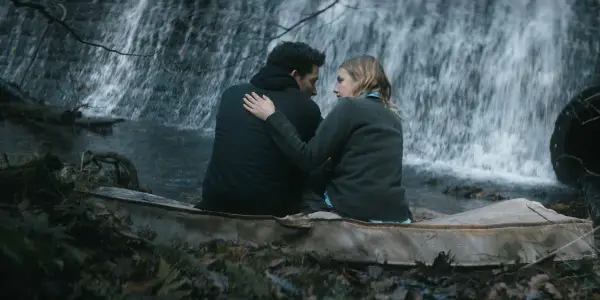
While the reasons are still unknown, I feel that Bridgend should have still asked questions and at least theorised about what took place. I can understand a filmmaker not wanting to be controversial, take advantage of the situation or offend anyone. However, if you’re going to take on a taboo subject you may as well do something with it. Addressing issues of mass hysteria or perhaps even the high suicide rates of the valleys would have been a start. But this film isn’t interested in the broader argument, all it sees is an alien small town with a dark story.
The English Gaze
The film was shot in Bridgend with the younger actors being recruited from the area (although as far as could tell they were just actors who happened to be South Walean). This would lead you to imagine there must have been some support for the film. Indeed Rønde’s research of the town and the people means that in this we do have a fairly accurate rendering of Welsh life. It just doesn’t help that it’s through the eyes of an English person. While it is important to the film’s narrative to have an outsider enter the village, why she has to be English I don’t know. We get a bit sick of Wales seen through an English gaze, but then Rønde, being Danish, wasn’t to know that.
There are many things about this film that made me feel uneasy. But I know that all that comes down to how I personally feel about it. Because I am familiar with these places and this story. At one point a few of the characters sneak into an amusement park. A place I haven’t been to since I was young because a boy died on one of the fairground rides. A number of other incidents followed, including the discovery of one of the Bridgend suicides on the amusement park site. A story emitted from the film, but still in its shadow.
Conclusion
I spent most of this film dealing with it as two separate issues: the film itself, and how I felt about it. Hence the organisation of this review. Objectively I would say it was a very well made film and while the narrative lags in the middle and the characters are a little shallow, it is still an intriguing watch.
Rønde has certainly been sympathetic to the story and the people of Bridgend. However, this theorising of the teenagers as some kind of drunken, potentially violent wolf pack is unhelpful. While you could put forward the case that the teenagers are acting out of trauma and shock, there’s still something missing. Because of this the film lacks depth and, because it doesn’t ask the important questions, a reason to be made.
All in all, Bridgend is a intriguing film, but to be honest, I found it upsetting. Bridgend has not been released in Wales. I’m not sure if this is a good or bad thing. If the theory is right and the reputation of the Bridgend suicides incited more deaths, then it’s best kept away. On the other hand, this is a film about us and the area that was live. To keep that away from us and use it for objective entertainment elsewhere in the world is just bad form.
Have you seen Bridgend? Are you from the valleys and have a view on the making of it? Or are you from another country, and able to look on it with objective eyes? Do let me know in the comments, I’m eager to know your thoughts.
Bridgend is currently available on Fandor in the US and Canada only.
Does content like this matter to you?
Become a Member and support film journalism. Unlock access to all of Film Inquiry`s great articles. Join a community of like-minded readers who are passionate about cinema - get access to our private members Network, give back to independent filmmakers, and more.
I love film, more than people probably, and I will watch pretty much anything. Seriously, anything! I have a postgraduate education in film & have spent an exceptionally long time trying to get inside the film industry. I'm a big believer in treating every film the same, and bringing something new to the film theory table, giving reasons for every argument made. You'll find that I'm an empathetic and fun sort of reviewer, at least, I like to think so. If I'm not watching films I'm doing exceptionally nerdy stuff, like watching documentaries about the history of medicine and collecting photos of old post boxes.











